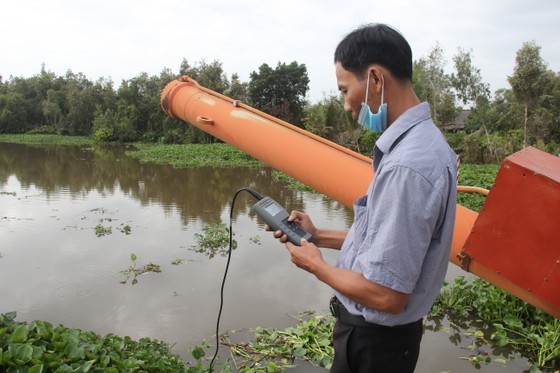 |
The functional agencies of Hau Giang Province regularly check the salinity level of water in the dry season to actively cope with trouble |
Accordingly, Deputy Director Le Thanh Tung of the Department of Crop Production (under the Agriculture and Rural Development Ministry) informed that the surface area for rice production in the Mekong Delta this year is over 3.8 million hectares. The estimated yield is almost 24 million tonnes, a rise of 416,000 tonnes compared to this time last year.
In the meeting, participants all agreed on the positives in rice and fruit production and export in the Mekong Delta. They also discussed the disadvantages, along with possible solutions to grow and other crop types in adverse weather conditions.
According to the Irrigation Department as well as centers for meteorological and hydrological forecasting, due to disadvantageous developments of the water flow on the Mekong River plus El Nino, agricultural production activities in the Mekong Delta will see various challenges in the upcoming dry season.
In November 2023, the 4-permille saline boundary will intrude 25-30km and then farther in the future. Hence, about 400,000ha of land for rice fields and orchards in the Mekong Delta will face water lack and salinity intrusion. In particular, 26 percent of the winter-spring rice crop (375,000ha) will suffer this state in the coastal area of the provinces of Long An, Ben Tre, Tien Giang, Tra Vinh, Soc Trang, Bac Lieu, and Kien Giang. Salinity intrusion will also affect nearly 43,300ha of fruit crop land in the four provinces of Long An, Tien Giang, Ben Tre, and Soc Trang.
The Irrigation Department warns that localities must store freshwater as much as possible to use when the intrusion goes deep inland and the salinity concentration is high.
























